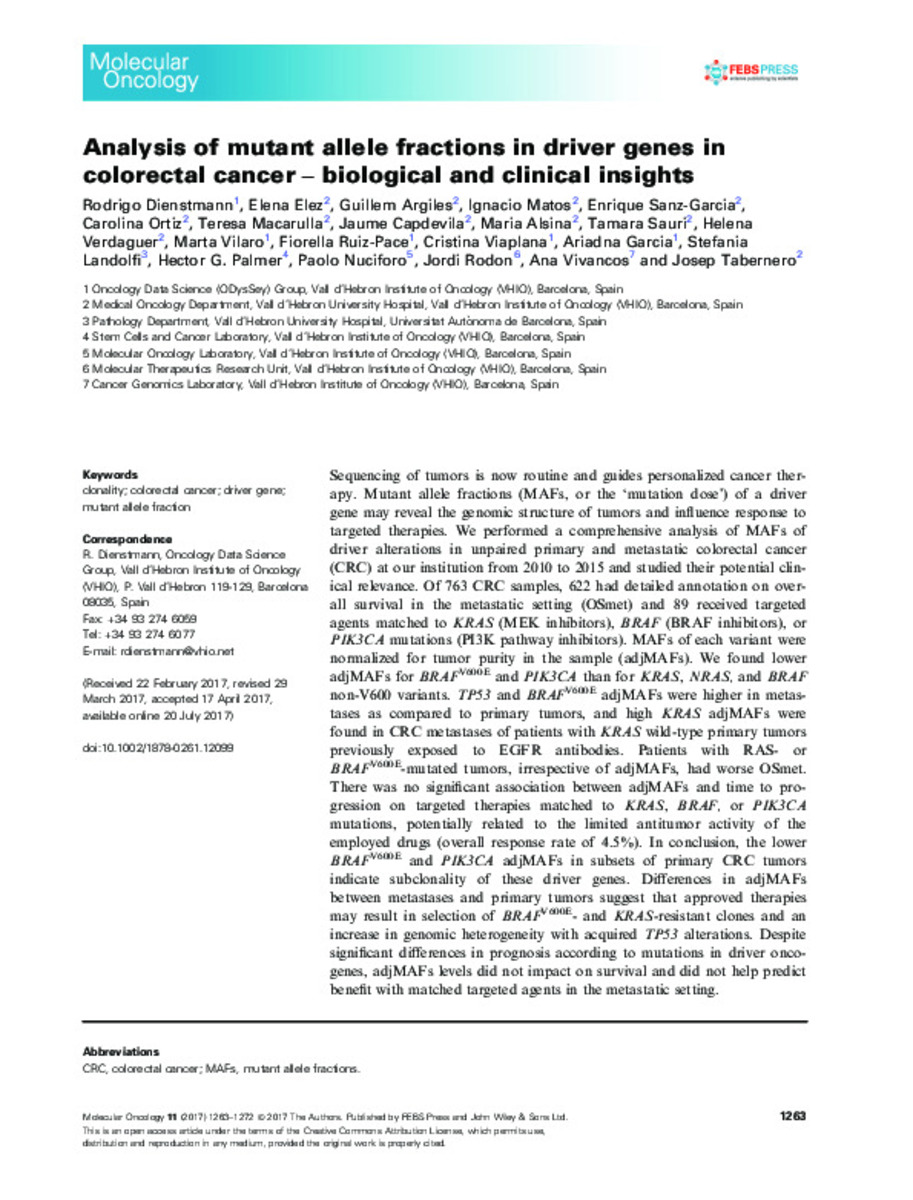Analysis of mutant allele fractions in driver genes in colorectal cancer – biological and clinical insights
Ficheros en este ítem:
Estadísticas e impacto
Los ítems de Dadun están protegidos por copyright, con todos los derechos reservados, a menos que se indique lo contrario.







